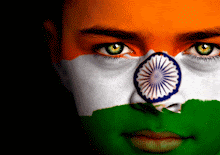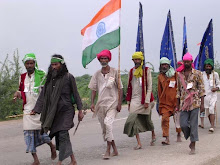

The Sri Lankan Civil War is the name given to the ongoing conflict on the island-nation of Sri Lanka. Since July 23, 1983, there has been on-and-off civil war, predominantly between the government and the Liberation Tigers of Tamil Eelam (LTTE, also known as the Tamil Tigers), a separatist armed organization which fights for the creation of an independent state named Tamil Eelam in the north and the east of the island.
Over 70,000 people have been officially listed as killed in the war since 1983. As one of the world's deadliest ongoing armed conflicts, it has caused significant adversity to the population, environment and the economy of the country. The tactics employed by the Liberation Tigers of Tamil Eelam, have resulted in the organization being banned as a terrorist organization in 32 countries including the United States, Japan, Brazil, Australia, the nations of the European Union, and Canada.
After two decades of fighting and three failed attempts at peace talks, including the unsuccessful deployment of the Indian Army as a peacekeeping force from 1987 to 1990, a lasting negotiated settlement to the conflict appeared possible when a cease-fire was declared in December 2001, and a ceasefire agreement signed with international mediation in 2002. However limited hostilities renewed in late 2005 and the conflict began to escalate until the government launched a number of major military offensives against the LTTE beginning in July 2006, and drove the LTTE out of the entire Eastern province of the island. The LTTE then declared they would "resume their freedom struggle to achieve statehood".
The government then shifted its offensive to the north of the country, and formally announced its withdrawal from the ceasefire agreement on January 2, 2008, alleging that the LTTE violated the agreement over 10,000 times. Since then, aided by the destruction of a number of large arms smuggling vessels that belonged to the LTTE, and an international crackdown on the funding for the Tamil Tigers, the government has taken control of 99.8% of the territory previously controlled by the Tamil Tigers, including their de-facto capital Kilinochchi, main military base Mullaitivu and the entire A9 highway.
As a result of the latest fighting, experts predict the long running conflict could soon come to an end, with the government taking over the final bit of territory controlled by the Tamil Tigers. However the rebels have vowed to fight on, and are expected to wage an underground guerrilla campaign, launching hit and run attacks against the military and suicide bombings around the country, if they were defeated as a conventional force. On February 3, 2009, the United States, the European Union, Japan and Norway issued a joint statement urging the Tamil Tigers to lay down their arms and end hostilities, as there was just a short time before the Tigers lose all the territory still under their control.
The fate of civilians trapped in the 'no-fire zone' has become a major concern for the international community at this stage of war.
Sri Lankan Civil War
Date
July 23, 1983 – present
Location
Sri Lanka
Status
Ongoing
Territorialchanges
The LTTE occupies an area of around 18.2 km² in the Mullaitivu District.[1]
Belligerents
Sri LankaIndian Peace Keeping Force (1987–90)
Liberation Tigers of Tamil Eelam
Commanders
Over 70,000 people have been officially listed as killed in the war since 1983. As one of the world's deadliest ongoing armed conflicts, it has caused significant adversity to the population, environment and the economy of the country. The tactics employed by the Liberation Tigers of Tamil Eelam, have resulted in the organization being banned as a terrorist organization in 32 countries including the United States, Japan, Brazil, Australia, the nations of the European Union, and Canada.
After two decades of fighting and three failed attempts at peace talks, including the unsuccessful deployment of the Indian Army as a peacekeeping force from 1987 to 1990, a lasting negotiated settlement to the conflict appeared possible when a cease-fire was declared in December 2001, and a ceasefire agreement signed with international mediation in 2002. However limited hostilities renewed in late 2005 and the conflict began to escalate until the government launched a number of major military offensives against the LTTE beginning in July 2006, and drove the LTTE out of the entire Eastern province of the island. The LTTE then declared they would "resume their freedom struggle to achieve statehood".
The government then shifted its offensive to the north of the country, and formally announced its withdrawal from the ceasefire agreement on January 2, 2008, alleging that the LTTE violated the agreement over 10,000 times. Since then, aided by the destruction of a number of large arms smuggling vessels that belonged to the LTTE, and an international crackdown on the funding for the Tamil Tigers, the government has taken control of 99.8% of the territory previously controlled by the Tamil Tigers, including their de-facto capital Kilinochchi, main military base Mullaitivu and the entire A9 highway.
As a result of the latest fighting, experts predict the long running conflict could soon come to an end, with the government taking over the final bit of territory controlled by the Tamil Tigers. However the rebels have vowed to fight on, and are expected to wage an underground guerrilla campaign, launching hit and run attacks against the military and suicide bombings around the country, if they were defeated as a conventional force. On February 3, 2009, the United States, the European Union, Japan and Norway issued a joint statement urging the Tamil Tigers to lay down their arms and end hostilities, as there was just a short time before the Tigers lose all the territory still under their control.
The fate of civilians trapped in the 'no-fire zone' has become a major concern for the international community at this stage of war.
Sri Lankan Civil War
Date
July 23, 1983 – present
Location
Sri Lanka
Status
Ongoing
Territorialchanges
The LTTE occupies an area of around 18.2 km² in the Mullaitivu District.[1]
Belligerents
Sri LankaIndian Peace Keeping Force (1987–90)
Liberation Tigers of Tamil Eelam
Commanders
Date 22, april, 2009
Junius Richard Jayawardene (1983–89)
Harkirat Singh (1987–90)Ranasinghe Premadasa (1989–93) †Dingiri Banda Wijetunge (1993–94)Chandrika Kumaratunga (1994–2005)Mahinda Rajapaksa (2005– present)
Velupillai Prabhakaran (1983– present)
Strength
Sri Lanka Armed Forces:95,000 (2001)118,000 (2002)158,000 (2003)151,000 (2004)111,000 (2005)150,900 (2006)[2]Indian Peace Keeping Force:100,000 (peak)
LTTE:6,000 (2001)6,000 (2002)7,000 (2003)7,000 (2004)11,000 (2005)8,000 (2006)7,000 (2007)
Casualties and losses
20,866 SLA soldiers killed as of 2009; 3,800+ SLA soldiers killed after 2001; 1,500 IPKF soldiers killed;1,000 Sri Lankan police killed
21,051 Tigers killed as of mid-2008; 2,200 (LTTE claim) - 4,073 (SLA claim) Tigers killed in 2008
80,000 killed overall by end of 2008 (including civilians)2,800 civilians killed in 2009
Junius Richard Jayawardene (1983–89)
Harkirat Singh (1987–90)Ranasinghe Premadasa (1989–93) †Dingiri Banda Wijetunge (1993–94)Chandrika Kumaratunga (1994–2005)Mahinda Rajapaksa (2005– present)
Velupillai Prabhakaran (1983– present)
Strength
Sri Lanka Armed Forces:95,000 (2001)118,000 (2002)158,000 (2003)151,000 (2004)111,000 (2005)150,900 (2006)[2]Indian Peace Keeping Force:100,000 (peak)
LTTE:6,000 (2001)6,000 (2002)7,000 (2003)7,000 (2004)11,000 (2005)8,000 (2006)7,000 (2007)
Casualties and losses
20,866 SLA soldiers killed as of 2009; 3,800+ SLA soldiers killed after 2001; 1,500 IPKF soldiers killed;1,000 Sri Lankan police killed
21,051 Tigers killed as of mid-2008; 2,200 (LTTE claim) - 4,073 (SLA claim) Tigers killed in 2008
80,000 killed overall by end of 2008 (including civilians)2,800 civilians killed in 2009






No comments:
Post a Comment